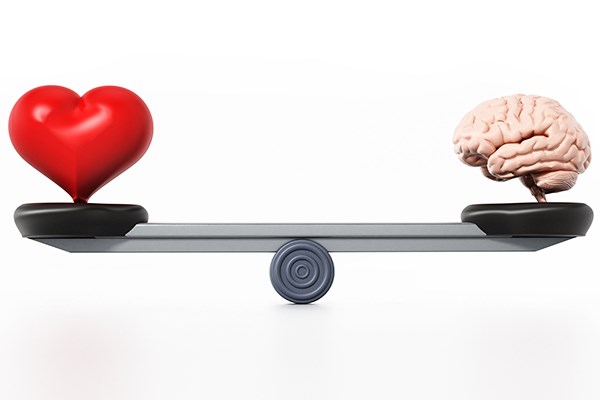Daily life in the emergency department is engulfed with teamwork, delivering bad news, and encountering challenging patients and personalities. Performing at a high level in this environment can be mentally, emotionally, and physically taxing. To address this demand, there is a skill that forms one of the cornerstones of a successful emergency physician: emotional intelligence.
Emotional intelligence (EI), as defined by Adele Lynn, is the “ability to manage ourselves and our relationships with others so that we can live our intentions.”1 Our ultimate intention in emergency medicine is to improve the wellbeing of patients. If it is recognized that this desired outcome is not solely dependent on our cognitive abilities (medical knowledge, procedural skills, and understanding of the most up-to-date evidence based medicine), the role of EI becomes clear. EI involves making choices about how to respond to our feelings in relation to others’ behaviors and feelings. If our cognitive abilities and EI are combined, we can navigate an ever-changing and demanding environment to successfully achieve our ultimate intention.
While many books and research papers have explored the details of EI, you can apply these 5 basic tenets of EI during your next shift:1-2
- Self-awareness and self-control
- Empathy
- Social expertness
- Personal influence
- Mastery of purpose and vision
Self-Awareness and Self-Control
While these components build off of each other, they all start with self-awareness and self-control. In fact, this first component can be utilized on a daily basis. We all know of a patient (co-worker, boss, administrator) who, as soon as we encounter them, makes our stomachs sink while we silently plead “Not again!” If we are self-aware, it allows us to examine why this feeling exists, providing reflection on what is actually occurring versus what we feel. It then becomes our choice to use this new understanding to reframe our thoughts and actions.
This change in approach helps realign a potentially negative encounter with our true intention. If this does not occur, we are at risk of “emotional hijacking,” which is when an emotion prevents us from communicating and achieving our true intentions.1 In the ED, this may come in the form of a demanding chronic pain patient, upset family members, or a skeptical consultant. With a combination of self-awareness and self-control in the ED, emotional hijacking can be minimized.
Social Awareness
The next two components, empathy and social expertness, can fall under a broader category, “Social Awareness.”2 These two components mold well together, as they both relate to relationships and build directly off self-awareness and self-control. Once we are able to understand our own emotions, our next goal is being able to understand and relate to others’ emotions — in other words, developing empathy. This will lead to “social expertness,” which exists when all parties involved can share both positive and negative feedback in a healthy manner. These types of relationships can be fostered in many ways, such as active listening, intentionally expressing gratitude, seeking out an empathetic mentor, offering an unexpected act of service, or getting others to talk more about themselves.1
Relationship Management
Finally, the last two EI components, personal influence and mastery of purpose and vision, fall under a broader category, “Relationship Management.”2 Once relationships are created, the goal is to positively influence others, enact change, and continue to pursue and refine intentions.1
The more EI is crafted and perfected, the more self-aware we become. This increases our ability to lead and positively affect the dynamic and often stressful ED environment to reach our ultimate intention — improving the wellbeing of patients.
References
- Lynn AB. The EQ Difference: A Powerful Plan for Putting Emotional Intelligence to Work. 1st ed. New York, NY: American Management Assocation; 2005.
- American College of Emergency Physicians. How to Develop Leadership Skills in Times of Change. Accessed 04/04/18.



